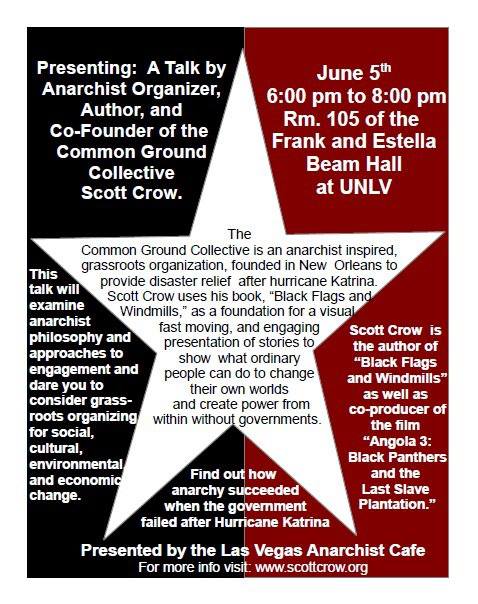tl;dr. There’s three beautiful new booklets available for ordering from the ALL Distro, and the Distro is officially launching two regular monthly publications. If you’re interested in subscribing for individual copies or bulk distribution packets, contact me.
I’m happy to announce three new additions to the Alliance of the Libertarian Left Artwork & Agitprop Distro, and some exciting new projects. First, the lit. Issue #17 of the Market Anarchy Zine Series is a classic from Voltairine de Cleyre on the egalitarianism of individual ownership and free competition. Second, the Distro is reorganizing some of its longer historical materials into an ongoing Anarchist Classics Zine Series. I quietly put up ACS#04 last month — an inexpensive, nicely-printed edition of Randolph Bourne’s anti-war, anti-state classic The State.[] Now I’m noisily putting up ACS#05 — a stand-alone printing of Proudhon’s Third Study from General Idea of the Revolution in the Nineteenth Century, The Principle of Association, which seems to be pretty rarely discussed these days but which really raises a lot of important and interesting issues for people from two rather different camps — those interested in the issues raised by post-Left Anarchy, on the one hand; and those engaged with the market Anarchist tradition, on the other.
The Lit
|
|
A follow-up to de Cleyre and Rosa Slobodinsky's classic The Individualist and the Communist (Market Anarchy Zine Series #2, Capitalistic Anarchism?), in which de Cleyre looks at the egalitarianism of competition, and the invasiveness and domination involved in Communist attempts to control economic life according to anti-competitive blueprints.
Communism itself has two individuals within its folds known as the State Communist and the Free Communist.... An Anarchist-Communist is a person who is a man first and a Communist afterwards.... He... believes that property and competition must die yet admits he has no authority to kill them, contends for equality and in the same breath denies its possibility, hates charity and yet wishes to make society one vast Sheltering Arms... [But] a free Communist when driven into a corner always holds to freedom first. The State Communist, on the other hand ... believes in authority, and says so.
The main thing is, must we be licensed, protected, regulated, labeled, taxed, confiscated, spied upon, and generally meddled with, in order that correct statistics may be obtained and a quantity prescribed; or may we trust to the producers to look out for their own interests sufficiently to avoid under-stocked and over-stocked markets? Whether we may expect provision and order from those concerned, or be condemned to accept a governmental bill of fare from those not concerned....
$1.00 for 1; 75¢/ea in bulk.
|
|
|
The patriot loses all sense of the distinction between State, nation, and government. In our quieter moments, the Nation or Country forms the basic idea of society … we think of our own people merely as living on the earth's surface along with other groups, pleasant or objectionable as they may be, but fundamentally as sharing the earth with them. … Country is a concept of peace, of tolerance, of living and letting live. But State is essentially a concept of power, of competition: it signifies a group in its aggressive aspects. And we have the misfortune of being born not only into a country but into a State, and as we grow up we learn to mingle the two feelings into a hopeless confusion….
Wartime brings the ideal of the State out into very clear relief, and reveals attitudes and tendencies that were hidden. In times of peace the sense of the State flags in a republic that is not militarized. For war is essentially the health of the State. The ideal of the State is that within its territory its power and influence should be universal. … And it is precisely in war that the urgency for union seems greatest, and the necessity for universality seems most unquestioned.
The State is the last and best-known work of the radical essayist Randolph Bourne (1886-1918). Written during the last days of his life and published posthumously in 1918, this anti-state classic examines the mass psychology of war, and the role of war in the growth of State power and the manufacture of political identity — expressed most famously in Bourne's aphorism, War is the health of the State!
$2.00 for 1; $1.50/ea in bulk.
|
|
|
In The Principle of Association, Pierre-Joseph Proudhon —the 19th century French radical who became the first political thinker to describe himself as an Anarchist — takes on the revolutionary systems of authoritarian socialism. He questions the forms of authority, obligation, and micromanagement inherent in mass organization; he challenges the dogmatic formulas of From each according to his ability, to each according to his needs, and of social order based on systematic association at all costs. His revolutionary, libertarian socialist alternative: reciprocity and mutual exchange, emerging within a social space of individual initiative and spontaneous cooperation. Proudhon’s argument may be of special interest to those interested in issues raised by post-Left Anarchy or the market Anarchist tradition. From Proudhon’s 1851 masterpiece, General Idea of the Revolution in the Nineteenth Century.
Association, by itself, does not solve the revolutionary problem. Far from that, it presents itself as a problem, the solution of which implies that the associates enjoy all their independence, while preserving all the advantages of union; ... the best association is one into which, thanks to a better organization, liberty enters most and devotion least.
Whoever talks of association, necessarily implies obligation, common responsibility, fusion of rights and duties in relation to outsiders.... Association formed without any outside economic consideration, or any leading interest, association for its own sake, as an act of devotion, a family tie, as it were, is an act of pure religion, a supernatural bond, without real value, a myth.
$2.00 for 1; $1.50/ea in bulk.
|
The Announcement
Moreover, I’m happy to announce that from here on out, both the Market Anarchy Zine Series and the new Anarchist Classics Zine Series are going to become regular monthly publications. Until now, the Market Anarchy series has been, shall we say, irregularly published — William Gilis prepared the initial 5 issues all in late 2007, and new issues were put out by Southern Nevada ALL at intervals in 2008, 2009, and 2010, often with a couple new issues put out at a time in order to make sure that we had new material for an upcoming outreach event. But, honestly, this stuff is not hard and there is a lot of great material out there to cover; and regular publication offers a more reliable product for ALL locals, distros, infoshops and other radical spaces that might want to offer this stuff. So from here on out, here is the publication schedule:
Issues of the Market Anarchy Zine Series will be published each month, with the new issues going out during the third week of the month. Market Anarchy zines are short, punchy items, usually about 4-16pp, with a mix of historical[] and contemporary[] writing, usually focused on a single issue or critical question. These zines usually go for about $1.00 or $1.50 at outreach tables; cheaply-printed versions could plausibly be given away for free if your local group has access to free printing or a little money to burn. They are intended as attractive outreach material and should be very useful for people interested in market Anarchism broadly, or for ALL locals.
Issues of the Anarchist Classics Zine Series will be published each month, with the new issues going out during the third week of the month. Anarchist Classics zines are somewhat longer (usually about 16-40pp), tend towards more comprehensive overviews, and focus on the Anarchist tradition, not on contemporary writing. They are the kind of thing that could go for $2.00 or $3.00 at an outreach table; they are likely to be most interesting to people who want something less one-off and more comprehensive, or who like collecting and reading some good old texts. The series is intended to recover, republish and showcase classic texts from Anarchist, Individualist, and other radically anti-authoritarian social movements; we aim to introduce ideas, raise questions, and provoke conversations about the radical possibilities of total liberation, consensual politics and DIY social change.
As William said when he first introduced the Market Anarchy series:
The state of Market Anarchist propaganda has been pretty dismal. Despite a ton of resources on the internet, there are few books, pamphlets and articles available in the real world. And–aside from a few glossy and expensive volumes published by the Mises Institute–what there is just isn’t that pretty or appealing…. Anyway, to fill that void and maybe make things easier for the Market Anarchist who wants to go tabling or stock their local infoshop I’ve gone ahead and put together an easy-to-print series of pamphlets/zines on Market Anarchy.
I hope that the new projects and the regular publishing schedule will help out ALL locals, hometown radicals and market anarchists out to make a point. I can provide nicely printed copies at low cost; and for those who want super-low-cost zines to give away for free or just prefer to DIY, I’ll also be providing regular access to ready-to-print electronic copies to anyone who subscribes, orders or donates to the project. (For details on ready-to-print electronic copies, see below.)
Scatter tracts, like raindrops, over the land….
–William Lloyd Garrison, The Liberator, March 1831.
Subscribe! Table! Stock your local infoshop!
As always, you can order individual copies, sampler packs, or bulk orders for tabling, infoshop-stocking, and other special events. With issues coming out each month, I’d also like to announce that the Distro now offers you the option of setting up subscriptions for individual copies, or for bulk packets for distributing through your ALL local, at outreach tables, or through local radical libraries and infoshops. Here’s the basic break-down of your options. The prices all include any shipping and handling costs.
| Market Anarchy Zine Series |
|
Individuals |
Bulk Distribution Packets |
|
$1.50/issue
(= $18/year) |
No. of copies !!!@@e2;153;2022; 80¢/issue
(= N !!!@@e2;153;2022; $9.60/year) |
| Anarchist Classics Zine Series |
|
Individuals |
Bulk Distribution Packets |
|
|
$2.25/issue
(= $27/year) |
No. of copies !!!@@e2;153;2022; $1.25/issue
(= N !!!@@e2;153;2022; $15/year) |
Finally, a few more helpful perks if you set up a subscription:
Electronic copies. In addition to their print copies, if you want it, you’ll also get electronic copies of the documents used to produce each booklet, so that you can make your own print runs, produce ultra-low-cost copies to give away at outreach tables, political events, mobes, radical shin-digs, etc. All the documents are created using open-source software and can easily be viewed, printed, and edited using commonly-available software tools.
Customization on my end. Bulk order subscriptions can be localized by me, before they go out, so that your print run will include custom contact information about your hometown, your local group, or the distro/outlet/infoshop whence you send the booklets out.
Quarterly shipment packets. If you want, you can opt to get a significant discount (due to lower shipping costs), if you let me know you would rather receive a packet of the 3 most recent issues every 3 months, rather than 1 new issue each month. Mention it when you contact me if this is an option you’d like to consider.
I hope that I’ll get a more automated form for putting in orders for all this in the near future, but it’s going to take a fair amount of PHP monkey-work at the Distro page. For the next few months, if you’d like to set up a regular subscription for either the Market Anarchy Zine Series or the Anarchist Classics Zine series or both, please contact me forthwith and we’ll get something worked out.
See also:












